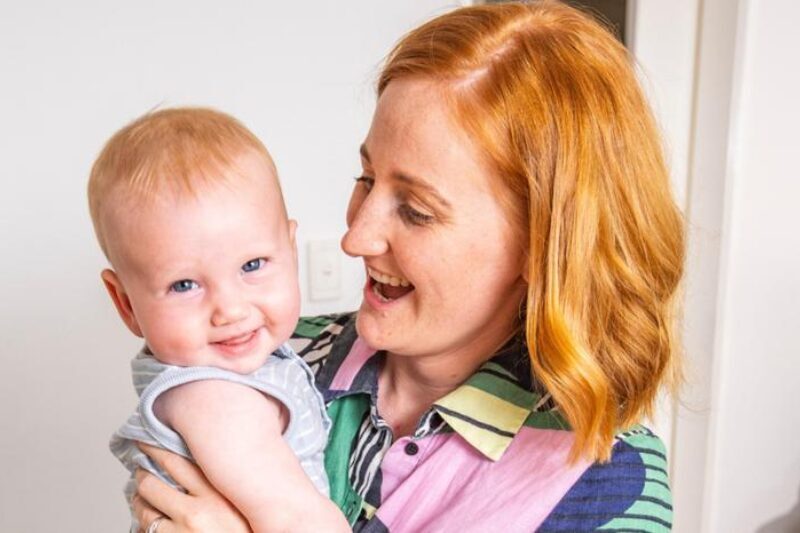Rihanna’s weeks were already busy as an expecting mother, but a gestational diabetes diagnosis meant her mental load increased tenfold.
Suddenly her days were filled with pin-pricks to her finger after every meal to check her blood glucose levels, planning out every meal, and attending extra appointments.
A study, which has been boosted thanks to Telethon funding, is now hoping to pave the way for improved testing and management of the condition that affects one in six pregnancies in Australia, with cases tripling over the past decade.
The Sweet Mum and Baby study is the most comprehensive of its kind in WA, comparing outcomes for babies born to mothers with diagnosed gestational diabetes, those who tested negative, and those who declined screening, in a bid to improve care for expectant mums.
Gestational diabetes mellitus is caused by a hormone made by the placenta, which prevents the body from using insulin effectively.
This means mothers with the condition must follow a strict diet to keep their blood sugar levels in check.
Rihanna welcomed her healthy baby Lawrie six months ago, but her pregnancy was filled with stress after her GDM diagnosis.
“You have to do an overhaul of your diet and exercise, your appointments double, and there’s also that mental load of the risk for your newborn baby as well,” she said.
“I was working full-time in quite a hectic job and there were some weeks where I would have five appointments.
“There’s a lot of meal planning that goes into it so it’s taking packed lunches or ensuring that when you do go out with friends and family that you can eat what’s on the menu, so you’re always on the ball.
“The impact of this is massive because it’s your health and it’s your baby’s health. Every woman wants to get that right, and there is a lot of guilt involved if you don’t get it right.”
Infants born to mothers with uncontrolled GDM face higher risks of preterm birth, low birth weight and respiratory distress syndrome, as well as long-term health issues such as type 2 diabetes, cardiovascular disease, and obesity.
Lead investigator Dr Zoe Bradfield, who works at Curtin University and the King Edward Memorial Hospital, said she hoped the study would improve management of the condition.
“The cognitive load amplifies significantly overnight just from that diagnosis, and that’s just about GDM. That’s not also about maintaining other general health, growing a healthy baby, and preparation for parenthood,” she said.
“These are significant burdens that women are silently carrying, and it’s time that we actually shine a light on what’s happening for women throughout this testing and diagnosis journey.”
Dr Bradfield said the urgent need for this study was also underscored by a rise in cases across Australia and a rise in women declining to be tested.
To test for GDM, pregnant women have to fast overnight and have a blood test, then drink a large sugary solution before having blood tests again one and two hours later.
“The oral glucose tolerance test largely hasn’t changed in almost 70 years,” Dr Bradfield said.
“We’ve heard anecdotally from women that for some it can be quite uncomfortable. They feel really sick doing it, and this is just one screening test during pregnancy.
“So to really shine a light on women’s experiences is an important part of us being able to improve the way that we care for people.”
The Telethon funding for this project has been administered through the Women and Infants Research Foundation.
To be a part of the survey, click here.
First published by The West Australian.
